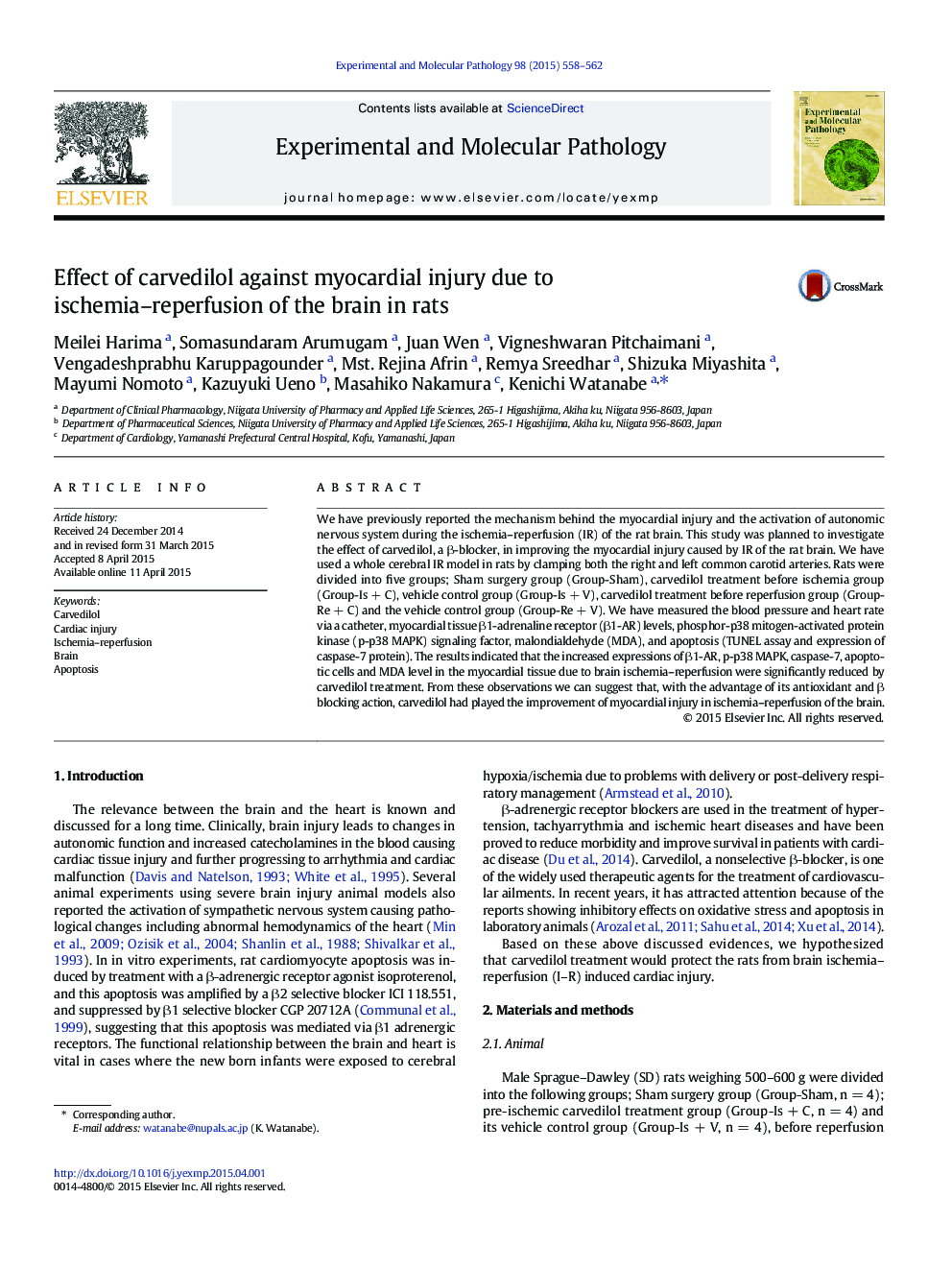| Article ID | Journal | Published Year | Pages | File Type |
|---|---|---|---|---|
| 5888058 | Experimental and Molecular Pathology | 2015 | 5 Pages |
â¢Cerebral ischemia-reperfusion in rats causes oxidative stress and cardiac apoptosis.â¢Carvedilol treatment protected rats from cardiac injury due to cerebral I-R.â¢Carvedilol treatment reduced lipid peroxidation in heart.â¢It suppressed the caspase-7 expression and apoptotic cells in the heart.
We have previously reported the mechanism behind the myocardial injury and the activation of autonomic nervous system during the ischemia-reperfusion (IR) of the rat brain. This study was planned to investigate the effect of carvedilol, a β-blocker, in improving the myocardial injury caused by IR of the rat brain. We have used a whole cerebral IR model in rats by clamping both the right and left common carotid arteries. Rats were divided into five groups; Sham surgery group (Group-Sham), carvedilol treatment before ischemia group (Group-Is + C), vehicle control group (Group-Is + V), carvedilol treatment before reperfusion group (Group-Re + C) and the vehicle control group (Group-Re + V). We have measured the blood pressure and heart rate via a catheter, myocardial tissue β1-adrenaline receptor (β1-AR) levels, phosphor-p38 mitogen-activated protein kinase (p-p38 MAPK) signaling factor, malondialdehyde (MDA), and apoptosis (TUNEL assay and expression of caspase-7 protein). The results indicated that the increased expressions of β1-AR, p-p38 MAPK, caspase-7, apoptotic cells and MDA level in the myocardial tissue due to brain ischemia-reperfusion were significantly reduced by carvedilol treatment. From these observations we can suggest that, with the advantage of its antioxidant and β blocking action, carvedilol had played the improvement of myocardial injury in ischemia-reperfusion of the brain.
